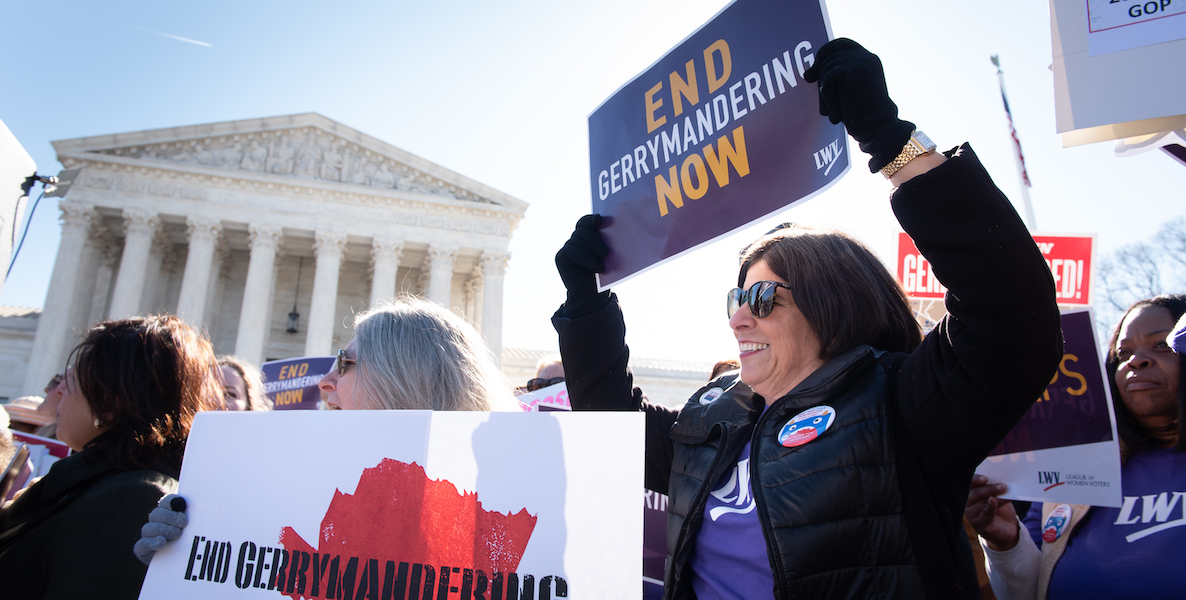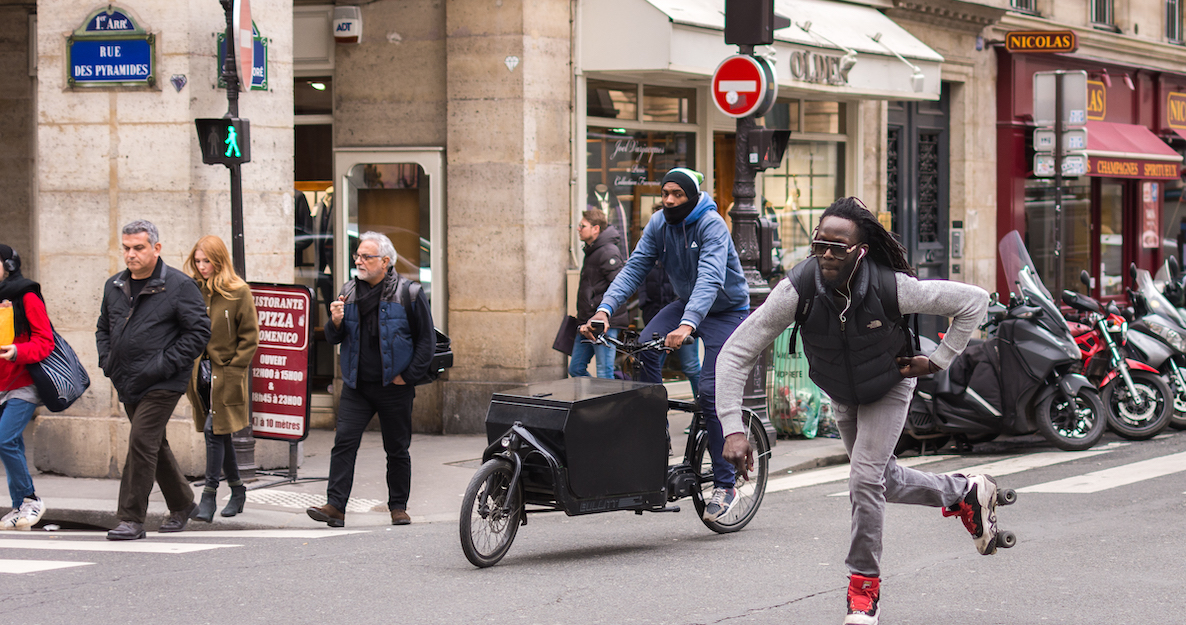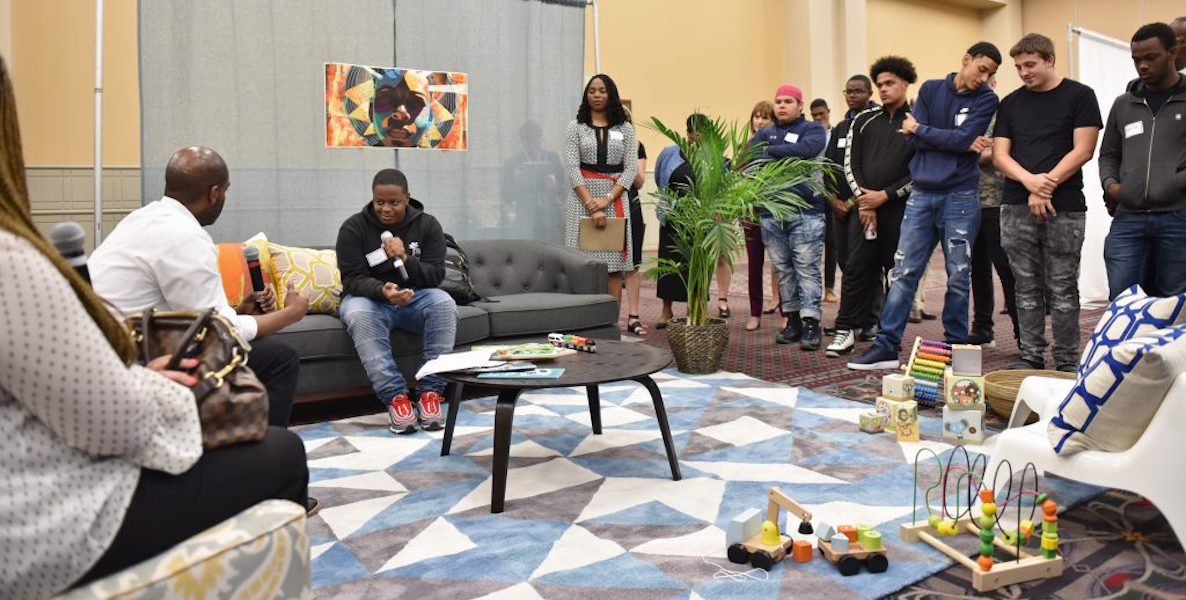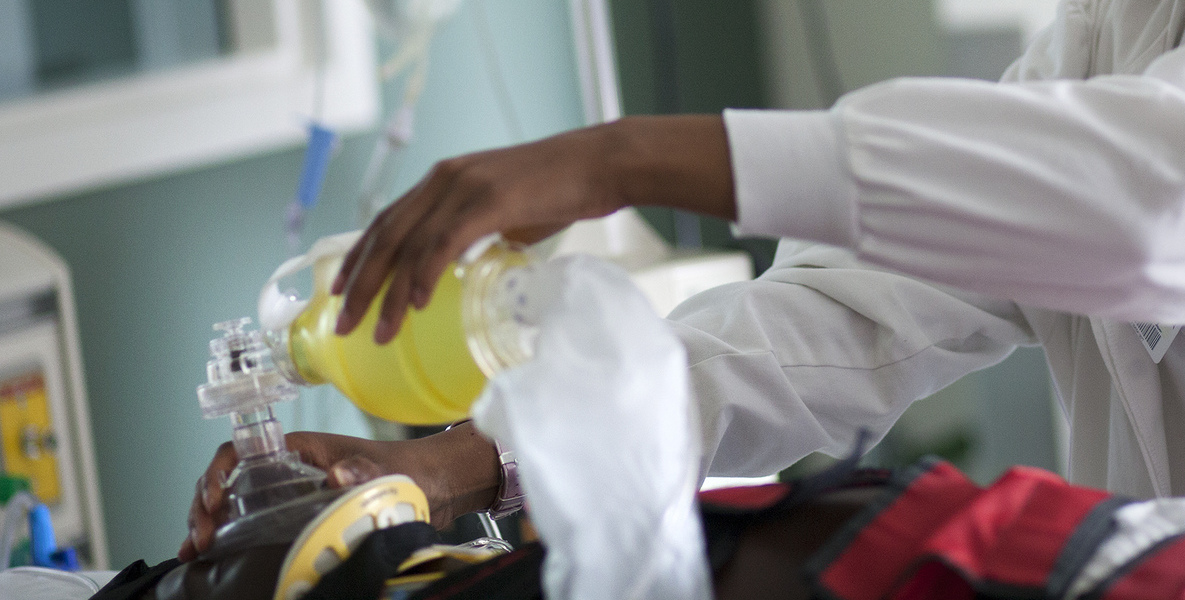“I could still see that vision so clearly in my head. Everything. What he was wearing, the car, the blood splatters…It just plays over and over and over. How do I heal from that?”
Khyle, a young African American man, in a white t-shirt with headphones hanging from his ears, is talking about trauma. He’s recalling the day, when he was a child, that he saw someone close to him shot and killed in front of him, and the years that followed—an adolescence of pushing forward, lashing out, never being asked about what he was feeling. “I was raised as ‘suck it up, suck it up, keep moving,’” he says.

Prefer the audio version of this story? Listen to this article in CitizenCast below:

Eventually, Khyle found Healing Hurt People, a Drexel University program co-founded by doctors John Rich and Ted Corbin, and started on the road to recovery. But it wasn’t just HHP that set Khyle on the path to healing. It was friendship—and realizing, Khyle says, that “You’re not the only one going through it.”
They are reaching out to TV news stations, too, in the hopes that they will direct people to the site when they are reporting about shootings in Philly, the way they often point people to suicide hotlines.
Khyle’s story, as told in a two-minute video released last Monday, was the first salvo in a six-week social media campaign by Healing Hurt People to share ideas and experiences of healing from trauma, as a way to encourage Philadelphians to realize the myriad ways individuals and communities can come back from violence. The #OurWordsHeal campaign, across Instagram, Facebook and Twitter, as well as on the web, consists of videos about personal, systemic, racial and other forms of trauma; question prompts like “Who do you heal for?” or “What music helps you heal?”; photographs; and stories. It is targeted at those both most affected by violence, and most apt to use social media: youth.
“We wanted to know how young people affected by this talk about not just their experience of trauma, but also their strength and capacity for healing,” says Rich.
Rich and Corbin, both medical doctors and professors at Drexel, launched HHP at the Center for Nonviolence & Social Justice a decade ago, to fill a void Corbin witnessed as an emergency room doctor at Hahnemann Hospital: Victims of gunshots, stabbings and assaults would leave with their physical wounds patched up, but no followup for their emotional and psychological wounds. Since then, they’ve worked with over 2,600 victims of violence from all parts of the city, and sometimes their families, and the model has been replicated in Chicago and Portland, Oregon. In addition to counseling, HHP offers participants—for as long as a year—help with social services, including healthcare and housing needs, and follows them in to their communities through peer health workers like Khyle’s friend, Jose Ferran, a gunshot victim who has since graduated from social work school.
![]()
Over the years, Rich and Corbin came to realize that trauma in a city like Philadelphia doesn’t necessarily match with how medical professionals view the ailment we know as Post Traumatic Stress Disorder. In fact, Rich says, 60 percent of the young people coming in to adult hospitals with injuries and 75 percent of the participants in HHP already experienced symptoms of trauma even before they showed up in the ER.
“People living in oppressive urban environments face not just physical violence, but oppressive police presence, poverty, lack of good schools, built environments that don’t feel safe,” Rich says. “There’s no ‘post’ for people living in these circumstances. They return back into their communities, feed back into that cycle of violence.”
HHP started referring to the condition they see as “Sustained Traumatic Stress Reaction.” And they started noting the ways that communities and individuals were finding ways to heal, and move on, that didn’t look like what standard clinical practice was offering: Exercise, yoga, drumming, meditation, friendship, music, even just being heard, in the right circumstances.
“There’s no ‘post’ [trauma] for people living in these circumstances. They return back into their communities, feed back into that cycle of violence,” says Rich.
“There are ways that people of color and oppressed people for generations have had to find ways to heal,” Rich says. “We realized we couldn’t just come up with a new name. How might that change our practice, too?”
![]()
This is the idea behind #OurWordsHeal, which HHP launched with mission-driven creative agency Mighty Engine. (The project is funded by Spring Point Partners, which also supports The Citizen.) The campaign launched on July 22, with the 2 minute video of Khyle, which has since been viewed by around 3,100 people. This week, Mighty Engine released another video, and another two per week are scheduled through the end of summer, along with the other prompts and ways for people to share their own stories. The videos and other photos are shot all over Philly, so people can see their neighborhoods and communities reflected, and they intentionally flip the usual script about trauma.
Usually, Mighty Engine President/CEO Heseung Song says, we spend 85 percent of the time talking about the source of trauma, and little on healing. These do the opposite. “If you heal, it’s this incredible mechanism,” says Song, herself a Harvard-trained psychologist. “And if you help to heal others, it helps you grow stronger. And it gives hope to others.”
“No one effort is going to address violence; it’s going to be a concerted effort,” Rich says. “What we’re paying attention to, even as we seek to solve these larger structural problems, is that we have to hear from people how they’re healing in real time.”
The goal of the campaign is to create a movement beyond HHP and Philadelphia, as well as a steady source of materials for both individuals experiencing trauma, and those who treat them. The campaign’s website includes all of the questions, prompts and videos, which Song says are free and open to anyone anywhere who wants to use them. “We welcome appropriation, because this is so important,” she notes. It also includes a growing list of free resources for people experiencing trauma, from music classes, to reading lists, photo clubs, activism and support groups. (Anyone with something to offer is welcome to reach out.) That addresses one of HHP’s concerns: That some of these healing tools are out of reach for people experiencing poverty.
Song says they are reaching out to TV news stations, too, in the hopes that they will direct people to the site when they are reporting about shootings in Philly, the way they often point people to suicide hotlines when applicable. And she says they hope the campaign goes national, to help shape the conversation about trauma, and healing, wherever it is needed.
Closer to home, Rich and Corbin say they don’t know what to expect—which is part of the point. “This is less about our telling, than about our hearing,” says Corbin, who likens it to the #MeToo movement, which opened the door for women to give voice to their own stories of harassment and assault. “We want to spend the next six weeks learning and creating space for this conversation.”
![]()
HHP continuously studies itself, to see how they are succeeding at their mission, to make sure people are feeling better, are connected to long-term resources and are decreasing symptoms of trauma. What they found, recently, is that they have succeeded in all of these—but not as much as they would like. They have already started to incorporate some nontraditional therapies, like drumming and yoga, and will react to what they discover during the #OurWordsHeal campaign when it ends.
Rich and Corbin acknowledge the long slog they are part of. They have not noticed, from the inside, the uptick in Philly’s gun violence the last couple years; to them, the stream of victims has been consistent. There has been a shift in the criminal justice system towards less incarceration; there are efforts to shore up public schools, which have ill-served Philly youth. But HHP deals with the reality that long-term solutions to the traumas of violence are not going to help people in the midst of it right now.
“No one effort is going to address violence; it’s going to be a concerted effort,” Rich says. “What we’re paying attention to, even as we seek to solve these larger structural problems, is that we have to hear from people how they’re healing in real time. Maybe this campaign will allow for more of that to be seen.”
Photo via Our Words Heal Facebook








